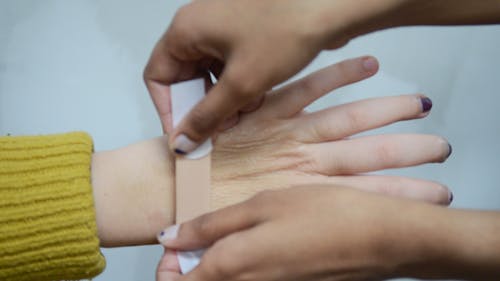Rutgers providing advances in senior health care

The Rutgers School of Health Related Professions created three new online programs with the intent of offering health care professionals the opportunity to learn more about health care for older adults, even if they are working full-time.
The number of older adults in the country is growing, but at the same time many professionals are not trained as to how to care for older adults, so the program was created with the purpose of catering to these growing needs.
Tracy Davis is the SHRP aging track coordinator, an assistant professor at the University and one of the brains behind the program.
“Graduates of our programs who are medical staff will be able to provide more efficient and effective, patient-centered care for older adults,” Davis said in an email. “This type of care will lead to increased positive health outcomes for both patients and staff.”
There are three different programs in aging, including a Bachelor of Science in Health Sciences with a concentration in aging, a Graduate Certificate in Aging and a Master of Science in Health Services with a concentration in aging, Davis said.
All three programs are similar, but are designed to suit the needs of different types of professionals and students.
Ann Tucker, chairperson of the Department of Interdisciplinary Studies, worked alongside Davis with creating this program.
“The program is offered online and offered year round,” Tucker said. “It is a wonderful opportunity for health professionals to interact through the program from all over the country.”
Through this online environment, professionals will learn from those in different geological areas as well as the diversity of individuals that comprise our aging population, she said.
According to website for the Online Graduate Certificate in Aging, the number of Americans 65 and older will double by mid-century rising from 39 million today to 89 million, and that as they age they require specialized health care.
Matt Valentine, a School of Arts and Sciences senior, feels as though this program would be a good solution for the aging baby boomers.
The online program is helpful and more convenient than coming to the campus and allows people from around the country to participate and opens doors, Valentine said.
“I think with the increase of older patients that looking at them from more of a holistic, well-rounded view is better than dismissing those aspects of life,” he said.
The Bachelor of Science provides a background in health sciences, scientific inquiry and a concentration in aging, while the master of science provides a background in health sciences, a strong research foundation and a concentration in aging, Davis said.
The Certificate in Aging was designed for those who already hold a bachelor’s degree, do not want a master’s, but want to have training in aging, she said.
According to the Rutgers Today, the programs are offered online to accommodate working health care professionals and collaborate with other SHRP departments as well as emphasize the interdisciplinary nature of geriatric care.
The topics in these programs include disease management, nutrition, psychiatric rehabilitation, alternative and complementary medicine, and ethical and legal issues, according to Rutgers Today.
“(Tracy) has designed the program, does research in the area of aging and has been collaborating with other programs such as physical therapy and our nutrition and psychosocial rehabilitation program,” Tucker said.
Working with these programs will allow students to look at physical, mental and nutritional aspects that would influence the care for the individual population, she said.
“(Professionals) need to have a broad understanding of the physiological and psychosocial aspects of the aging process as well as communication strategies, knowledge of emerging policy and sensitivity as to how ethnicity affects perceptions about health care and illness,” Davis said to Rutgers Today.
If individuals want to start with a certificate in aging they can later apply those credits towards the masters program, Tucker said.
“(The programs) are really for individuals who wish to work with older adults,” Tucker said. “It is not geared toward the individuals per se, but the health professionals to provide them with a background in disease processes and such and how to work with these adults.”
Students who complete the program will be prepared to enter or advance in careers in aging, and this will help the older population as well as the population in general by being able to provide more efficient and effective health care and services for older adults, Davis said.



